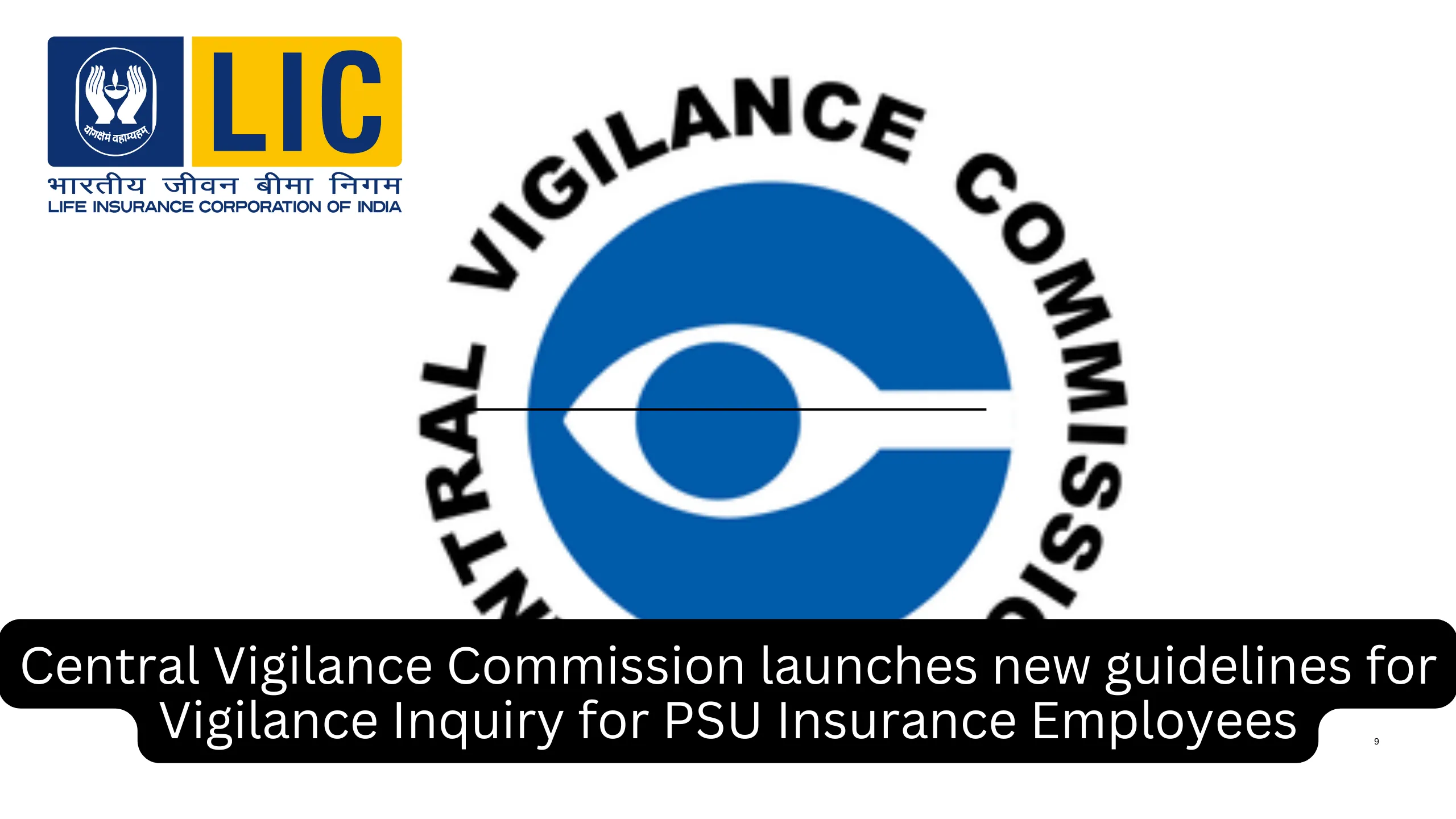The Central Vigilance Commission has launched new guidelines for Vigilance inquiry for PSU Insurance company employees. Business in Insurance is a risk transfer mechanism by which an organisation / individual (called “the insured”) can exchange uncertainty for certainty. Vigilance angle in Insurance Sectors would be visible in following misconducts:-
- Pre-dating of cover notes;
- Settlement of bogus claim in collusion with the insured / Surveyor / Workshop;
- Payment of an inflated amount as a claim;
- Irregularities in disposal of salvage, etc.;
- Cases of misappropriation of cash, purchase of inferior material at inflated cost, purchasing, constructing, hiring and releasing of premises without observing set norms and irregularities in awarding contract;
- Acceptance of a bad risk for insurance cover;
- Collusion with doctors, Hospitals, Third Party Administrators (TPAs) and other outsourced agencies (Agents, Brokers, Surveyors, Advocates) and others on medical examination of prospects;
- Deliberate bad underwriting practices;
- Acting against the interest of the company in placement of funds;
It may be noted that the list of misconducts as indicated above, is only an “illustrative list” and not an exhaustive one. There may be other misconducts by officials of Public Sector Insurance Companies which may attract vigilance angle. Therefore, the authorities concerned, including the respective Disciplinary Authority and the Chief Vigilance Officer, should examine a perceived misconduct in the light of broad parameters, as described below, before arriving at a conclusion regarding presence of vigilance angle or otherwise, in that matter.
Vigilance angle would be obvious in following misconducts on the part of an official:
- Demanding and/or accepting gratification other than legal remuneration in respect of an official act or for using his influence with any other official.
- Obtaining valuable thing, without consideration or with inadequate consideration from a person with whom he has or likely to have official dealings or his subordinates have official dealings or where he can exert influence.
- Obtaining for himself or for any other person any valuable thing or pecuniary advantage by corrupt or illegal means or by abusing his position as a public servant.
- Possession of assets disproportionate to his known sources of income.
- Cases of misappropriation, forgery or cheating or other similar criminal offences.
There are, however, other irregularities where circumstances will have to be weighed carefully to take a view whether the official’s integrity is in doubt. Gross or willful negligence; recklessness in decision making; blatant violations of systems and procedures; exercise of discretion in excess where no ostensible public interest is evident; failure to keep the controlling authority/superiors informed in time, any undue / unjustified delay in disposal of a case, are some of the irregularities where the Disciplinary Authority with the help of the CVO should carefully study the case, consider all relevant factors and weigh the circumstances to come to a conclusion whether there is reasonable ground to doubt the integrity of the official concerned.
